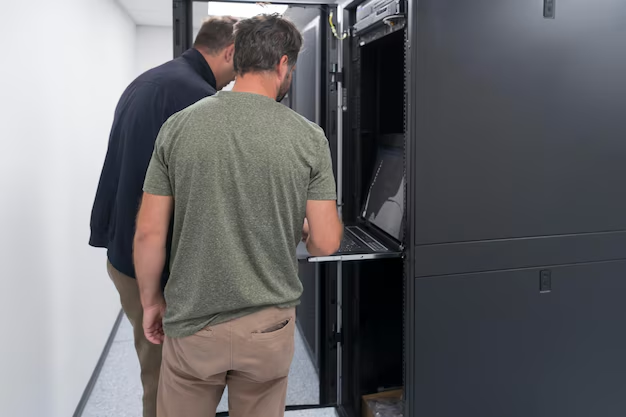Can You Replace a Refrigerator Compressor Yourself? A Deep Dive into DIY Appliance Repair
Imagine opening your refrigerator, only to find it warmer than usual. After some quick research, you suspect the compressor—a crucial component responsible for cooling—is malfunctioning. You might wonder: can I replace a refrigerator compressor myself, or should I call a professional? Let's explore this nuanced topic, examining the ins and outs of refrigerator compressors, evaluating the challenges and risks of DIY repair, and weighing the benefits of professional assistance.
Understanding the Role of the Refrigerator Compressor
What Exactly Does a Compressor Do?
Think of the compressor as the heart of your refrigerator. It circulates refrigerant throughout the cooling system, facilitating the heat exchange that keeps your food cold.
- Refrigerant Circulation: The compressor compresses the refrigerant gas, converting it to a liquid. This process generates heat, which is expelled from the system.
- Temperature Regulation: As the refrigerant passes through evaporator coils, it absorbs heat, cooling the interior of your fridge.
- System Efficiency: A well-functioning compressor helps maintain energy efficiency, reducing overall power consumption.
Signs of a Failing Compressor
Recognizing early symptoms of compressor issues can prevent extensive damage:
- Unusual Noises: A faulty compressor might produce loud humming, clicking, or buzzing sounds.
- Inconsistent Cooling: If the fridge fails to maintain a steady temperature, the compressor might struggle.
- Overheating: Feel the back of your refrigerator. Excessive heat can indicate compressor stress.
Is DIY Replacement a Viable Option?
Skills and Tools Required
Replacing a refrigerator compressor is not a simple task. Here’s what you need to consider if you're contemplating a DIY approach:
- Technical Knowledge: Familiarity with electric wiring and circuit boards is essential.
- Specialized Tools: Tools like a manifold gauge set, soldering iron, and a refrigerant recovery system are necessary.
- Safety Precautions: Handling refrigerants poses environmental and health risks. Ventilation and protective gear are critical.
Potential Challenges
The complexity of compressor replacement often surprises DIY enthusiasts. Here are a few hurdles:
- Time Commitment: The process might take several hours, from diagnosis to testing.
- Precision Required: Proper installation is crucial; any mistake can lead to refrigerant leaks or operational failures.
- Parts Compatibility: Identifying and sourcing the correct compressor model compatible with your fridge is challenging.
Why Professional Help Might Be the Better Choice
Expertise and Experience
Professionals come equipped with the know-how to diagnose and fix the problem efficiently:
- Accurate Diagnostics: Experts can identify issues beyond the compressor, ensuring a comprehensive fix.
- Quality Assurance: Professional services often provide guarantees or warranties on parts and labor.
- Environmental Compliance: Licensed technicians adhere to environmental regulations during refrigerant handling.
Long-Term Cost Benefits
Though upfront costs might be higher, professional repair can save money over time:
- Avoiding Repeated Fixes: Correct installations reduce the risk of recurring problems.
- Energy Efficiency: Proper repair can restore the appliance's efficiency, lowering energy bills.
- Preventing Further Damage: Timely intervention reduces the risk of additional component failures.
A Balanced Comparison
Before making a decision, consider a quick comparison:
| Aspect | DIY Replacement | Professional Assistance |
|---|---|---|
| Cost | Lower initial cost | Higher initial cost but potential savings in the long run |
| Time | Time-consuming | Quick and efficient |
| Skill Level | Requires technical skills and specialized tools | Expertise and experience in handling complex tasks |
| Risk | Higher risk of error and injury | Lower risk with professional handling |
| Quality of Repair | Dependent on personal skill and tool quality | Guaranteed workmanship and reliability |
Key Takeaways and Next Steps
Deciding whether to replace a refrigerator compressor yourself or hire a professional should be informed by various factors, including your expertise, the importance of the fridge efficiency, and long-term considerations.
- Consider Skill Level: Evaluate whether you have the necessary skills and tools to undertake the replacement safely.
- Think About Costs: Weigh the immediate expense of hiring a professional against potential further costs from a DIY mishap.
- Safety First: Prioritize safety and environmental compliance when handling refrigerants—this might tip the scale towards professional help.
- Build Your Appliance Knowledge: Understanding your appliance better can guide maintenance and prevent future issues.
Quick Tips for Refrigerator Maintenance 🛠️
- Regular Cleanings: Keep coils dust-free and verify seals are intact for efficiency.
- Monitor Temperatures: Regularly check the interior temperature using a fridge thermometer.
- Inspect Seals and Gaskets: Ensure door seals are tight to maintain cooling effectiveness.
Sometimes deciding whether to attempt a repair yourself involves assessing the value of your time and the cost of potential mistakes. While DIY projects can be rewarding and budget-friendly, professional help provides expertise, safety reassurance, and peace of mind. Whether you opt for a DIY approach or professional assistance, understanding your refrigerator's needs ensures longer life and better performance for a crucial household appliance.

